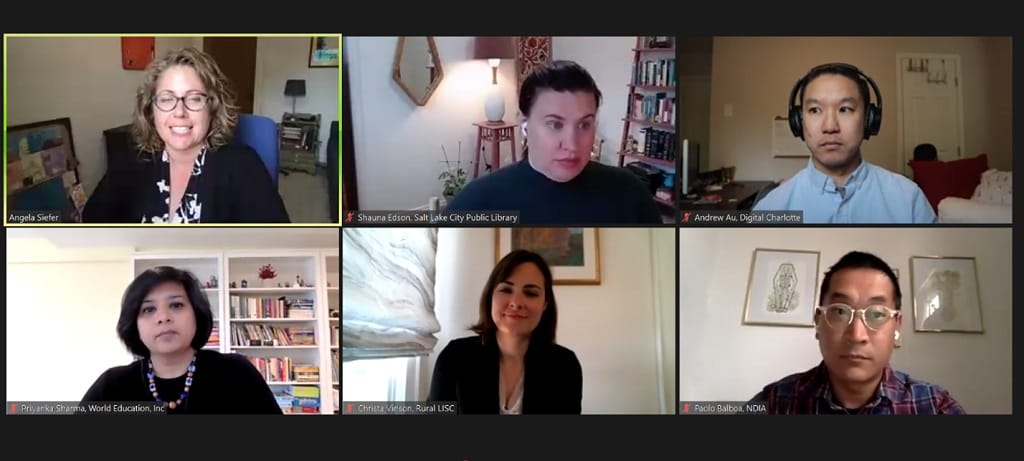Multilingual Digital Navigators Crucial For Inclusion
Digital liaisons who speak multiple languages can help guide multilingual communities for the digital future.
Derek Shumway

April 19, 2021 – Encouraging multilingualism among digital navigators will help facilitate better inclusion in digital adoption, experts said last week.
Speaking Spanish is a huge plus for digital navigators in Salt Lake City, Utah, for example, as many of its focused neighborhoods needing to be connected to broadband speak the language, said Shauna McNiven Edson, digital inclusion coordinator at Salt Lake City Public Library.
Edson and other panelists spoke last Wednesday at the 2021 Net Inclusion Webinar Series hosted by the National Digital Inclusion Alliance, a digital inclusion advocacy group on what skills are needed to become a digital navigator.
At the Salt Lake City Public Library, progress is there but challenges persist for digital inclusion and navigation. Edson said there were about 450 participants in its library program’s group for digital inclusion. However, only about 5 percent of participants, or 22 people, have adequate broadband at home. Seventy-five percent of members said they needed help finding a computer or internet-enabled deice, and 10 percent of its 450 members have contacted the library’s support staff for It issues.
Digital navigators are crucial because they connect community members with the skills and resources they need to become digitally literate and help them get adequate broadband. Navigators can be volunteers or cross-trained staff who already work in social service agencies, libraries, health, and more who offer remote and socially distant in-person guidance.
Compared to the rest of the country, Salt Lake City is highly connected, said Edson. Every community has a unique demographic make-up, and if the communities who need access to broadband mostly speak Spanish or English or even Mandarin, there should be community anchors with highly trained digital navigators to help the underconnected.
Andrew Au, director of operations at Digital Charlotte, said digital inclusion should include adult education. Every library and public institution that offers internet services should have digital navigators available and onsite to guide individuals in their communities and offer continuing education resources to keep digital skills literacy up, he said.









Member discussion